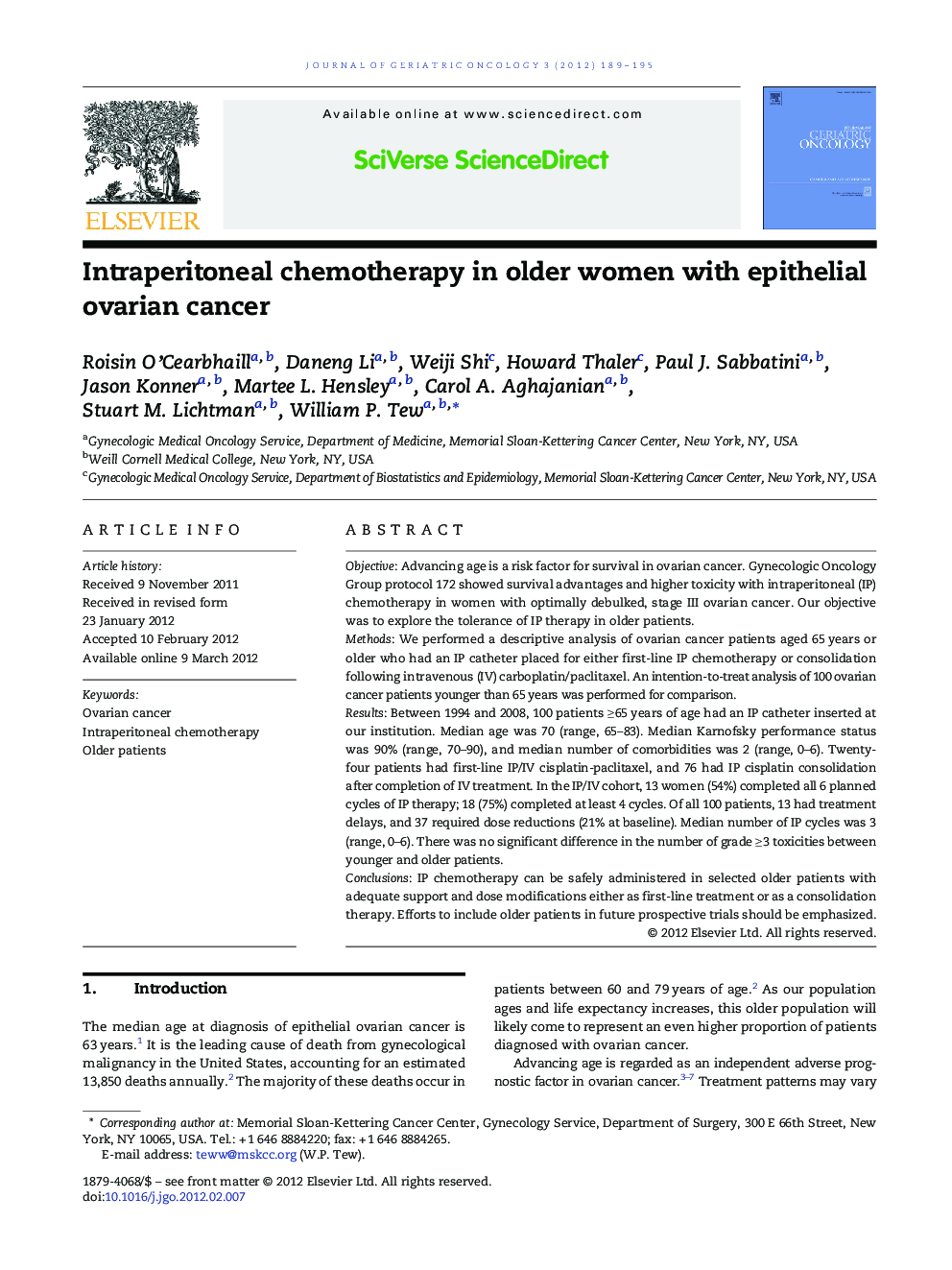| Article ID | Journal | Published Year | Pages | File Type |
|---|---|---|---|---|
| 1912636 | Journal of Geriatric Oncology | 2012 | 7 Pages |
ObjectiveAdvancing age is a risk factor for survival in ovarian cancer. Gynecologic Oncology Group protocol 172 showed survival advantages and higher toxicity with intraperitoneal (IP) chemotherapy in women with optimally debulked, stage III ovarian cancer. Our objective was to explore the tolerance of IP therapy in older patients.MethodsWe performed a descriptive analysis of ovarian cancer patients aged 65 years or older who had an IP catheter placed for either first-line IP chemotherapy or consolidation following intravenous (IV) carboplatin/paclitaxel. An intention-to-treat analysis of 100 ovarian cancer patients younger than 65 years was performed for comparison.ResultsBetween 1994 and 2008, 100 patients ≥ 65 years of age had an IP catheter inserted at our institution. Median age was 70 (range, 65–83). Median Karnofsky performance status was 90% (range, 70–90), and median number of comorbidities was 2 (range, 0–6). Twenty-four patients had first-line IP/IV cisplatin-paclitaxel, and 76 had IP cisplatin consolidation after completion of IV treatment. In the IP/IV cohort, 13 women (54%) completed all 6 planned cycles of IP therapy; 18 (75%) completed at least 4 cycles. Of all 100 patients, 13 had treatment delays, and 37 required dose reductions (21% at baseline). Median number of IP cycles was 3 (range, 0–6). There was no significant difference in the number of grade ≥ 3 toxicities between younger and older patients.ConclusionsIP chemotherapy can be safely administered in selected older patients with adequate support and dose modifications either as first-line treatment or as a consolidation therapy. Efforts to include older patients in future prospective trials should be emphasized.
